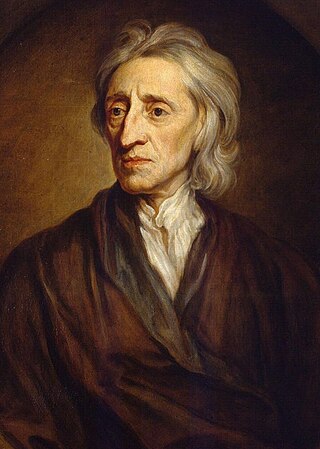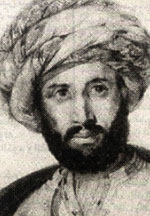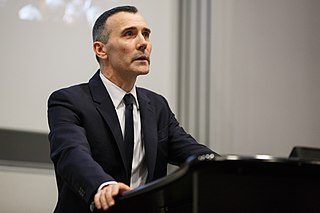
John Locke was an English philosopher and physician, widely regarded as one of the most influential of Enlightenment thinkers and commonly known as the "father of liberalism". Considered one of the first of the British empiricists, following the tradition of Francis Bacon, Locke is equally important to social contract theory. His work greatly affected the development of epistemology and political philosophy. His writings influenced Voltaire and Jean-Jacques Rousseau, and many Scottish Enlightenment thinkers, as well as the American Revolutionaries. His contributions to classical republicanism and liberal theory are reflected in the United States Declaration of Independence. Internationally, Locke's political-legal principles continue to have a profound influence on the theory and practice of limited representative government and the protection of basic rights and freedoms under the rule of law.

Niccolò di Bernardo dei Machiavelli was a Florentine diplomat, author, philosopher and historian who lived during the Renaissance. He is best known for his political treatise The Prince, written around 1513 but not published until 1532, five years after his death. He has often been called the father of modern political philosophy and political science.

The Renaissance is a period in history and a cultural movement marking the transition from the Middle Ages to modernity, covering the 15th and 16th centuries and characterized by an effort to revive and surpass the ideas and achievements of classical antiquity; it was associated with great social change in most fields and disciplines, including art, architecture, politics, literature, exploration and science. It began in the Republic of Florence, then spread to the rest of Italy and later throughout Europe. The term rinascita ("rebirth") first appeared in Lives of the Artists by Giorgio Vasari, while the corresponding French word renaissance was adopted into English as the term for this period during the 1830s.
Intellectual history is the study of the history of human thought and of intellectuals, people who conceptualize, discuss, write about, and concern themselves with ideas. The investigative premise of intellectual history is that ideas do not develop in isolation from the thinkers who conceptualize and apply those ideas; thus the intellectual historian studies ideas in two contexts: (i) as abstract propositions for critical application; and (ii) in concrete terms of culture, life, and history.

Jean Bodin was a French jurist and political philosopher, member of the Parlement of Paris and professor of law in Toulouse. Bodin lived during the aftermath of the Protestant Reformation and wrote against the background of religious conflict in France. He seemed to be a nominal Catholic throughout his life but was critical of papal authority over governments and there was evidence he may have converted to Protestantism during his time in Geneva. Known for his theory of sovereignty, he favoured the strong central control of a national monarchy as an antidote to factional strife.

Granta is a literary magazine and publisher in the United Kingdom whose mission centres on its "belief in the power and urgency of the story, both in fiction and non-fiction, and the story's supreme ability to describe, illuminate and make real." In 2007, The Observer stated: "In its blend of memoirs and photojournalism, and in its championing of contemporary realist fiction, Granta has its face pressed firmly against the window, determined to witness the world."

"The Two Cultures" is the first part of an influential 1959 Rede Lecture by British scientist and novelist C. P. Snow which were published in book form as The Two Cultures and the Scientific Revolution the same year. Its thesis was that science and the humanities which represented "the intellectual life of the whole of western society" had become split into "two cultures" and that this division was a major handicap to both in solving the world's problems.
The New Culture Movement was a progressivist movement in China in the 1910s and 1920s that criticized traditional Chinese ideas and promoted a new form of Chinese culture based upon progressive, modern ideals like electoral politics and the scientific method. Arising out of disillusionment with traditional Chinese culture following the failure of the Republic of China to address China's problems, it featured scholars such as Chen Duxiu, Cai Yuanpei, Chen Hengzhe, Li Dazhao, Lu Xun, Zhou Zuoren, He Dong, Qian Xuantong, Liu Bannong, Bing Xin, and Hu Shih, many classically educated, who led a revolt against Confucianism. The movement was launched by the writers of New Youth magazine, where these intellectuals promoted a new society based on unconstrained individuals rather than the traditional Confucian system. In 1917, Mr. Hu Shih put forward the famous “Eight Principle”, that is, abandon the ancient traditional writing method and use vernacular.

Daniel Bell was an American sociologist, writer, editor, and professor at Harvard University, best known for his contributions to the study of post-industrialism. He has been described as "one of the leading American intellectuals of the postwar era". His three best known works are The End of Ideology, The Coming of Post-Industrial Society, and The Cultural Contradictions of Capitalism.

Sir Herbert Edward Read, was an English art historian, poet, literary critic and philosopher, best known for numerous books on art, which included influential volumes on the role of art in education. Read was co-founder of the Institute of Contemporary Arts. As well as being a prominent English anarchist, he was one of the earliest English writers to take notice of existentialism. He was co-editor with Michael Fordham and Gerhard Adler of the British edition in English of The Collected Works of C. G. Jung.
Quentin Robert Duthie Skinner is a British intellectual historian. He is regarded as one of the founders of the Cambridge School of the history of political thought. He has won numerous prizes for his work, including the Wolfson History Prize in 1979 and the Balzan Prize in 2006. Between 1996 and 2008 he was Regius Professor of History at the University of Cambridge. He is the Emeritus Professor of the Humanities and Co-director of The Centre for the Study of the History of Political Thought at Queen Mary University of London.
Sir Geoffrey Rudolph Elton was a German-born British political and constitutional historian, specialising in the Tudor period. He taught at Clare College, Cambridge, and was the Regius Professor of Modern History there from 1983 to 1988.
John Neville Figgis was an English historian, political philosopher, and Anglican priest and monk of the Community of the Resurrection. He was born in Brighton on 2 October 1866. Educated at Brighton College and St Catharine's College, Cambridge, he was a student of Lord Acton at Cambridge, and editor of much of Acton's work.
John Ponet, sometimes spelled John Poynet, was an English Protestant churchman and controversial writer, the bishop of Winchester and Marian exile. He is now best known as a resistance theorist who made a sustained attack on the divine right of kings.

The Structural Transformation of the Public Sphere: An Inquiry into a Category of Bourgeois Society is a 1962 book by the philosopher Jürgen Habermas. It was translated into English in 1989 by Thomas Burger and Frederick Lawrence. An important contribution to modern understanding of democracy, it is notable for "transforming media studies into a hard-headed discipline." In 2022 Habermas published a brief sequel, A New Structural Transformation of the Public Sphere and Deliberative Politics.

Dr Ruth Scurr FRSL, aka Lady Stothard, is a British writer, historian and literary critic. She is a Fellow of Gonville and Caius College, Cambridge.

Rifa'a Rafi' at-Tahtawi was an Egyptian writer, teacher, translator, Egyptologist, and intellectual of the Nahda.

De Beneficiis is a first-century work by Seneca the Younger. It forms part of a series of moral essays composed by Seneca. De Beneficiis concerns the award and reception of gifts and favours within society, and examines the complex nature and role of gratitude within the context of Stoic ethics.

Richard Bourke is a UK-based Irish academic specialising in the history of political ideas. His work spans ancient and modern thought, and is associated with the application of the historical method to political theory. He is Professor of the History of Political Thought at the University of Cambridge, and a Fellow of King's College, Cambridge. He was formerly Professor of the History of Political Thought and Co-Director of the Centre for the Study of the History of Political Thought at Queen Mary, University of London. In July 2018 Bourke was elected a Fellow of the British Academy (FBA).












